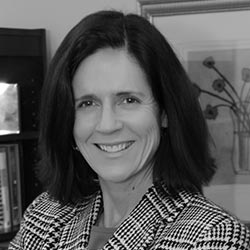
Kevin LaGrandeur on Surviving the Rise of Machines
March 13, 2017
President Trump has declared war on companies that send American jobs overseas and undertaken several initiatives in the name of protecting our middle class, but the real threat to American jobs isn’t foreign workers, it’s robots and computers, writes Kevin LaGrandeur, Ph.D., professor at NYIT College of Arts and Sciences, in an op-ed published in USA Today.
“Alleviating the worst effects of technological unemployment will require radically new approaches to economic policy,” offers LaGrandeur.
Reforms might include a universal basic income, a shorter workweek, and a mechanism for paying individuals when personal data is used by technology firms to turn a profit. “What’s clear, however, is that we can’t meet this distinctly 21st-century challenge with outmoded protectionism,” he writes.
Ultimately, the extraordinary productivity gains from automation promise to provide cheaper goods, economic growth, and more jobs. But in the short-term, there is a real possibility of mass technological unemployment.
“This historic upheaval in our labor markets demands a dramatic policy response aimed at smoothing the transition to a more automated economy,” he notes. Proposals like these may seem radical, but they are precisely the kinds of innovative policy solutions that this moment demands.
Read LaGrandeur’s entire op-ed.
This op-ed is part of an NYIT thought-leadership campaign designed to help generate awareness and build reputation for the university on topics of national relevance. Read more op-eds by NYIT experts.
More Features

An Alumnus’ Commitment to the Environment
As an energy management graduate from New York Tech’s Vancouver campus, Jasdeep Gulati (M.S. ’22) is highly invested in educating people about environmental and climate sustainability.

Vancouver Faculty Win University-Sponsored Research Awards in New Program
The new Global Impact Research Grant (GIRG) program has been developed to keep Vancouver-based faculty connected to faculty and research projects being conducted on the university’s New York campuses.

Studying Climate Change One Degree at a Time
Junhua Qu (M.S. ’24) began her collegiate journey in Beijing. But, her interest in climate change took her to New York Tech’s Vancouver campus to study energy management.
